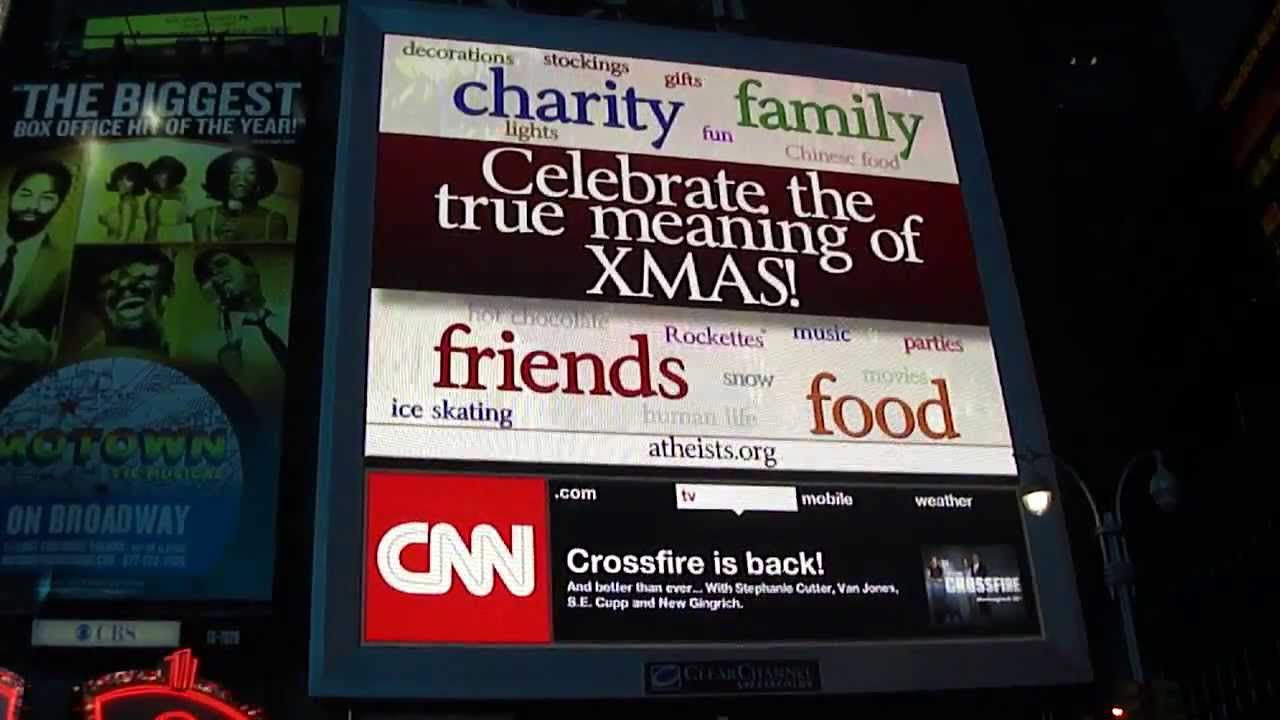…For Love Can Confound Us All
‘American Atheists’ shone a light in Times Square in 2013 , one which proclaimed that nobody needs Christ at Christmas. ‘Christ’ was duly crossed out and Christmas spelled Xmas (it’s pity about the ‘mass’ part, and that “X” is an abbreviation of χρ, a Christian symbol for the Greek word Χριστος (ie.Christ), but I suppose we have to call the festival something).
Anyhow, it’s hardly news that Atheists want to keep Christ out of Christmas, or, I expect, any other time of the year; indeed, this seems so obvious to me now that I find myself more interested in the incongruity expressed in the pursuit of “a sense of transcendence”by those who are opposed to religion.
However it is an incongruity of a different kind which is on my mind this Christmas, an incongruity stimulated by this latest atheist evangelism campaign and a sermon given by NT Wright on Christmas Morning 2005 , and one found in the opening chapter of John’s Gospel:
“And the light shineth in darkness; and the darkness comprehended it not.” (John 1:5)
“He was in the world, and the world was made by him, and the world knew him not” (John 1:10)
“He came unto his own, and his own received him not.” (John 1:11)
The contrasts are startling, and as NT Wright explains, “we risk skipping over the
incomprehensibility, the oddness, the almost embarrassing strangeness, of the Word”, and I’d like to suggest that this Christmas we spare a thought for those who do not believe in God and those who are opposed to God, and remember that we who now believe once stood in their shoes.
I am reminded of a comment once made to me on a Northern Ireland internet forum, one on which a number of ‘regulars’ (atheist and Christian) debated. It was something like this – ‘I cannot understand how otherwise intelligent people continue to believe in a god’. At the time I was tempted to reply, ‘I cannot understand how otherwise intelligent people continue to refuse to believe in God.’
And isn’t this part of the problem of our culture wars? We simply don’t seem to understand each other – we don’t ‘get’ each other. But Christians should understand, we really should, for we were once those who did not know; and perhaps this Christmas we should remember John 1 to help us understand the Universal ‘incomprehensibility’ of ‘Christ-mas’: “the world knew him not…his own received him not”: believing is not easy, and our apologetic must never suggest that it is.
Haven’t we all been confounded by Christ? Haven’t we all rebelled, haven’t we all at various times and in various ways failed to receive him, and shouldn’t we all be confounded by God in a manger? It isn’t surprising that atheists think they don’t need Christ; it would be surprising, however, if Christians underestimated their own need of a light to shine in their own darkness, and their own confounding.

